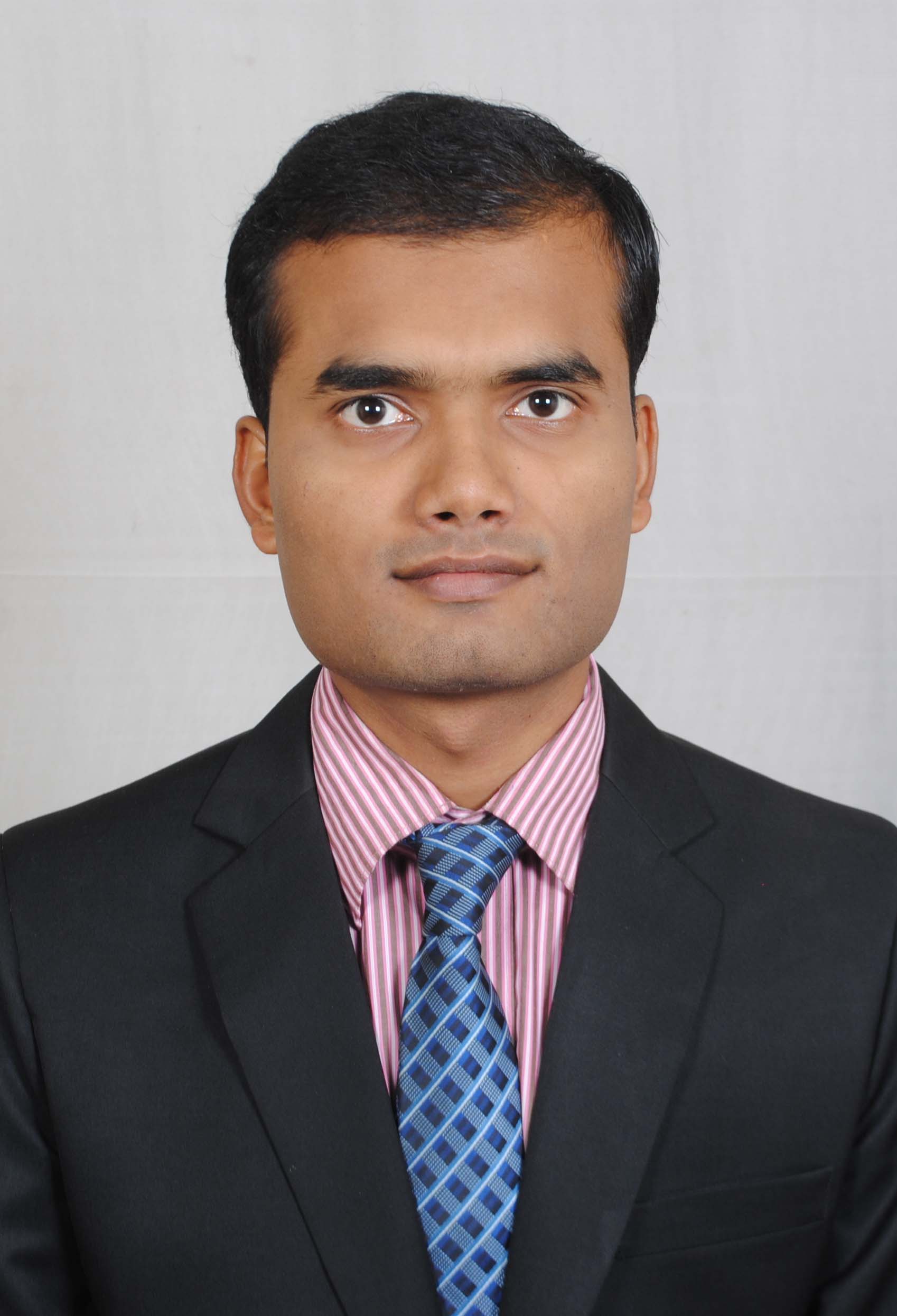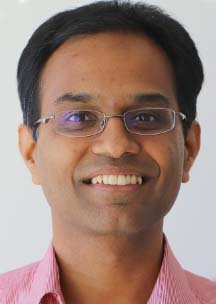International Workshop on Applied Machine Learning for Intelligent Energy Systems (AMLIES)
Co-located with ACM e-Energy Conference 2019, Arizona, USA
Overview Call for Papers Key Dates Keynote Speakers Schedule Organizing Committee Technical Program Committee Contact

Overview
The capacities of societal-scale infrastructures such as power grids, smart buildings, transportation and other energy systems are rapidly increasing, leading to Cyber-Physical Systems that can deliver human-centric values and energy services while enhancing efficiency and resilience. Technological advancements in sensing, learning, control and optimization hold enormous capacity to deliver intelligent energy systems of the future that are empowered to address pressing societal issues such as energy crisis, climate change and environmental pollution. There has been an increasing interest to use Machine Learning, Data Analytics and Internet of Things (IoT) in diverse energy systems including smart buildings, power systems, transportation systems etc., to drive applications related to modelling, control, fault and anomaly detection and optimization of energy, space and cost amongst others. This has led to improved energy efficiency, occupant comfort and productivity in smart buildings and enhanced system robustness and resilience in power systems.
However, the application of machine learning to these energy systems has also opened up new research challenges. To perform optimally, these algorithms require substantial amount of labelled training data. Collection and labelling of the data in complex systems such as power grids and buildings with complicated energy usage behaviors require considerable amount of expert knowledge and is often prone to security and privacy issues. Efficiently using the available energy data for inference, decision and control can prove beneficial in this scenario. Another challenge is the lack of direct measurements for important drivers of energy consumption, such as occupancy. Data from opportunistic sources (such as images or communication network data) can be adopted to overcome this challenge. This workshop seeks to bring together researchers to discuss such underlying challenges related to the application of Machine Learning to Energy Systems, including smart buildings, smart grid and transportation systems and to present proposed and ongoing work to address them.
Contact: amlies.workshop@gmail.com
Call For Papers
The workshop invites original papers that were not previously published and are not currently under review for publication elsewhere.
Topics of interest for this workshop include (but are not limited to) the following:
- Unsupervised Learning and few-shot learning for intelligent energy systems
- Transfer Learning, data-efficient learning and domain adaptation techniques for energy systems
- Generalized learning frameworks for energy systems enabled by Meta Learning and Multitask Learning
- Application of Machine Learning to fault and anomaly detection, performance benchmarking, measurement and verification (M&V), and design and retrofit decision support for energy systems
- Data security and privacy mechanisms in energy data analytics
- Reinforcement Learning in dynamic and uncertain environments (e.g., renewable integration)
- Modeling and decision support for building to grid interaction enabling grid interactive efficient buildings (GEB)
- Vulnerability analysis and robust decision-making against cyberattacks
- Data-efficient occupant behavior, indoor air quality and thermal comfort modeling, monitoring and control for buildings
- Certification and standardization aspects with respect to machine learning applied to energy systems
- Representation Learning for energy societal networks/ social games
Two types of contributions are solicited:
- Full papers, up to 8 pages in 9-point ACM double-column format (excluding references) and unlimited number of pages for appendices and references, single-blind.
- Short papers, up to 4 pages in 9-point ACM double-column format (excluding references) and unlimited number of pages for appendices and references, single-blind.
The submission must be in PDF format and be formatted according to the official ACM Proceedings format. Papers that do not meet the size and formatting requirements may not be reviewed. Word and LaTeX templates are available on the ACM Publications Website. Submission implies the willingness of at least one author to register and present the paper at the workshop.
Submission portal: https://amlies19.hotcrp.com
Key Dates
- March 20, 2019: Paper submission deadline
- April 15, 2019: Author Notification
- May 20, 2019: Camera ready submission deadline
- June 25, 2019: Workshop
Keynote Speakers
-
Erika Gupta, Sensors and Controls Technology Manager, EERE's Building Technologies Office Department of Energy, USA
Keynote Title: Grid-Interactive Efficient Buildings (GEB): Vision , State of the Art and Challenges from a Machine Learning Perspective
Bio: Erika Gupta is the Sensors and Controls technology manager in EERE's Building Technologies Office with the Emerging Technologies program. Her work at BTO leverages her controls background, focusing on building energy management controls and projects supporting controls for grid-integrated efficient buildings.
-
Costas J. Spanos, Andrew S. Grove Distinguished Professor of Electrical Engineering and Computer Sciences, UC Berkeley
Keynote Title: TBA
Bio: Costas J. Spanos currently serves as the Director of the CITRIS and the Banatao Institute. He is also the Founding Director and CEO of the Berkeley Education Alliance for Research in Singapore (BEARS), and the Lead Investigator of a large research program on smart buildings based in California and Singapore. His research focuses on Sensing, Data Analytics, Modeling and Machine Learning, with broad applications in semiconductor technologies, and cyber-physical systems. He has published more than 300 papers, 15 patents, and a textbook. He has supervid more than 50 Ph.D. recipients. In 2000 he was elected Fellow of the Institute of Electrical and Electronic Engineers for contributions and leadership in semiconductor manufacturing. He was won several Best Paper Awards and was recently recognized with the Distinguished Berkeley Faculty Mentor Award.
-
Arun Vishwanath, Lead Research Scientist, IBM Research Australia
Keynote Title: BEACH - Building Energy Analytics for Cooling and Heating | abstract
Bio: Arun Vishwanath is a lead research scientist at IBM Research Australia working in the area of IoT, specifically on data driven techniques for energy optimisation in commercial buildings. He received the Ph.D. degree in Electrical Engineering from The University of New South Wales, Sydney, Australia in 2011 and was a visiting Ph.D. scholar with the Department of Computer Science at North Carolina State University, USA in 2008. He has served on the program committee of several ACM/IEEE conferences, published over 50 papers in top-tier venues and co-authored 20 US patents. His honours include the Best Paper Award at the ACM e-Energy 2018 conference, being named an ACM Distinguished Speaker and IEEE Senior Member.
-
Jason Hou, Senior Scientist, Pacific Northwest National Laboratory
Keynote Title: Several Applications of Machine Learning in Power Systems
Bio: Dr. Z. Jason Hou is a senior scientist and statistician at Pacific Northwest National Laboratory, and has been well recognized for leading pioneering work in developing and applying advanced machine learning, uncertainty quantification, and extreme events analysis, in the areas of earth, energy, and environmental systems. Dr. Hou's research broadly cuts across areas in stochastic operation and planning of energy systems, extreme events in earth systems, carbon sequestration, oil/gas exploration, and environmental remediation.
Workshop Schedule: June 25, 2019
-
Time
Event
9.00-9.05 AM
Opening Remarks
9.05-9.30 AM
Plenary Lecture:
Erika Gupta
Sensors and Controls Technology Manager
EERE's Building Technologies Office
Department of Energy, USA
9.35-10.15 AM
Keynote Address 1: Title: TBA
Costas J. Spanos
University of California, Berkeley
10.20-10.40 AM
“A sequential DNN based Baseline Energy Prediction
Framework with Long term Error Mitigation” - Indrasis
Chakraborty, Vikas Chandan, Draguna Vrabie10.40-11.00 AM
“Online Learning for Commercial Buildings” - Jin Dong,
Thiagarajan Ramachandran, Piljae Im, Sen Huang, Vikas
Chandan, Draguna L Vrabie, Teja Kuruganti11.00-11.20 AM
Coffee Break
11.20-11.50 AM
Keynote Address 2: Title: TBA
Arun Vishwanath
IBM Research, Australia
11.50-12.10 PM
“Coordination of Behind-the-Meter Energy Storage and
Building Loads: Optimization with Deep Learning Model” -
Yimin Chen, Vikas Chandan, Yunzhi Huang, M.J.E. Alam, Osman
Ahmed, Lane Smith12.10-12.30 PM
“Indoor Thermal Management Using Data Driven Learning and
Predictive Control” - Zaid Bin Tariq, M.H. Toufiq Imam,
Koushik Kar, Sandipan Mishra12.30-2.00 PM
Lunch
2.00 -2.30 PM
Keynote Address 3: Title: TBA
Jason Hou
Pacific Northwest National Laboratory
2.30-2.50 PM
“Cross-Categorical Transfer Learning based Composite Load
Protection Modeling” - Indrasis Chakraborty, Soumya Kundu,
Yuan Liu, Pavel Etingov2.50-3.10 PM
“A Clustering Approach for Consumer Baselining and Anomaly
Detection in Transactive Control” - Nasheen Nur, Siddharth
Sridhar, Seemita Pal, Aditya Ashok, Vinay C Amatya3.10-3.30 PM
“Day-Ahead Price Forecasting in ERCOT Market Using Neural
Network Approaches” - Jian Xu, Ross Baldick3.30-4.00 PM
Coffee Break
4.00-4.20 PM
“Adaptive Battery Control with Neural Networks” - Fiodar
Kazhamiaka, Srinivasan Keshav, Catherine Rosenberg4.20-5.15 PM
Panel Discussion: Panelists: TBA
"Creating ML Awareness among Energy Researchers and Energy
Awareness among ML Researchers"5.15-5.30 PM
Closing Remarks and Vote of Thanks
Organizing Committee
|
University of California, Berkeley |
Pacific Northwest National Laboratory |
IBM Research, Australia |
|
University of California, Berkeley |
University of California, Berkeley |
University of California, Berkeley |
|
Pacific Northwest National Laboratory |
Oak Ridge National Laboratory |
Lawrence Berkeley National Laboratory |
Technical Program Committee
|
|








